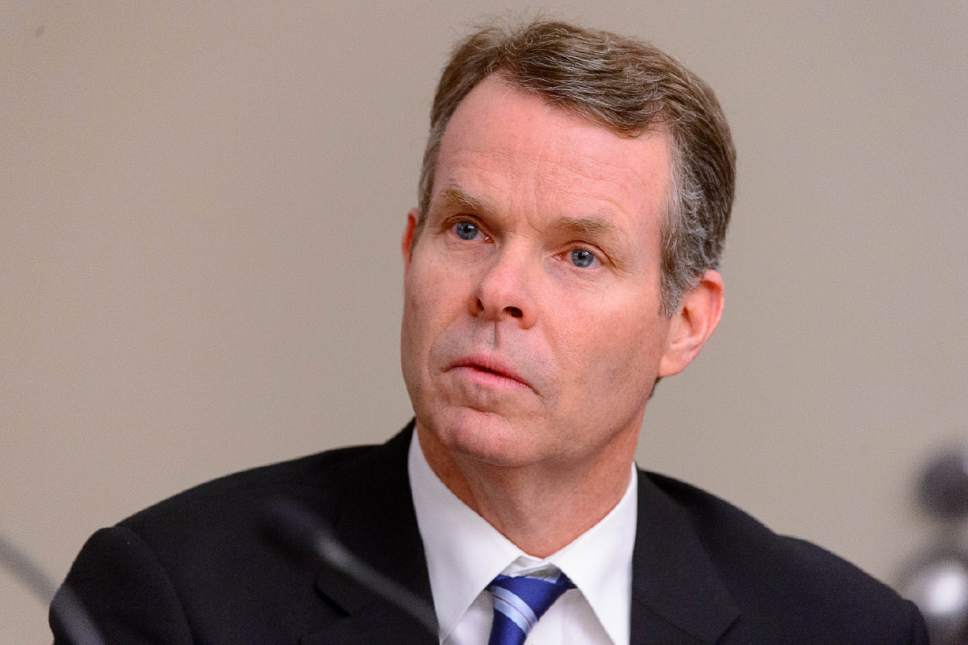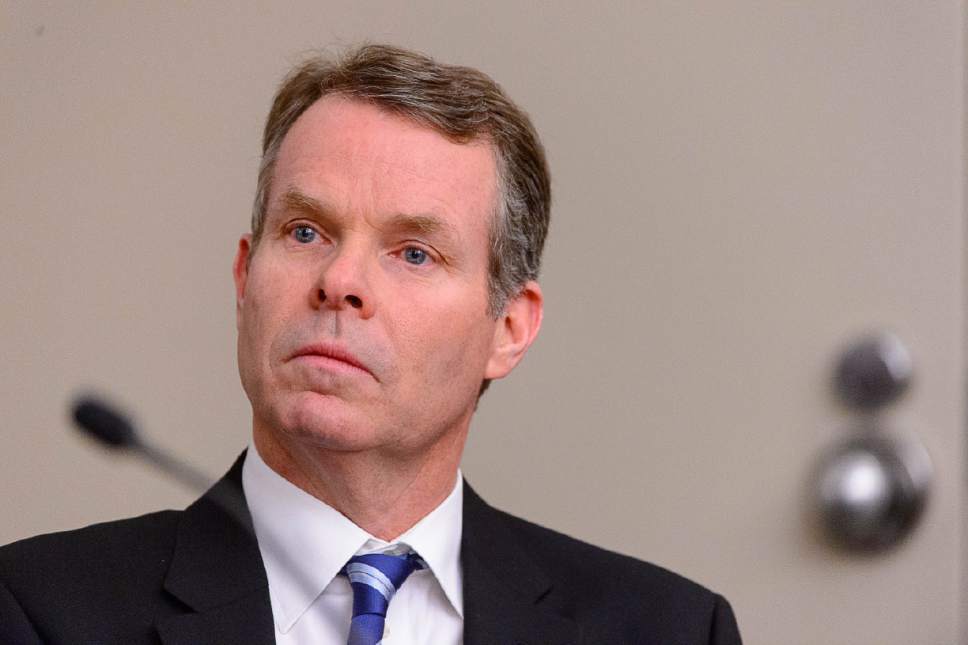This is an archived article that was published on sltrib.com in 2017, and information in the article may be outdated. It is provided only for personal research purposes and may not be reprinted.
The jury deciding John Swallow's fate in a long-awaited trial next month will get to hear statements from insiders that prosecutors say were part of the alleged criminal conspiracy that left the former Utah attorney general facing criminal charges.
Third District Judge Elizabeth Hruby-Mills issued a verbal ruling on the so-called hearsay statements Thursday during a telephone conference call with Swallow's attorneys and the Salt Lake County district attorney's office, court records show.
The decision followed two days of testimony from witnesses whose conversations and experiences with Swallow; his immediate predecessor, Mark Shurtleff; and a longtime Shurtleff friend, the late Tim Lawson; offer proof, prosecutors argue, that the three were engaged in a scheme to amass power, money and influence.
That's important because one of the charges accuses Swallow of engaging in a "pattern of unlawful activity," also known as racketeering.
"Shurtleff was at the apex of the conspiracy, the guy who called all the shots," Deputy District Attorney Fred Burmester said in this week's hearing. "Lawson was the muscle, who intimidated and threatened and Swallow was the moneyman."
Some of this week's testimony was explosive, including statements from formerly imprisoned businessman Marc Sessions Jenson that Utah House Speaker Greg Hughes, R-Draper, had been with Swallow and Shurtleff at a posh Southern California resort to discuss a controversial Utah Transit Authority rail station project. Jenson also said that former U.S. Sen. Harry Reid, a Nevada Democrat who was once the Senate majority leader, also huddles with UTA executives and developers.
Hughes has adamantly denied the allegations. Reid's office did not respond to a request for comment.
Both men now may be subpoenaed to testify during the trial, according to Swallow's attorney Scott C. Williams.
Swallow has pleaded not guilty to 13 felony and misdemeanor charges, including counts of bribery, accepting prohibited gifts, evidence tampering and obstruction of justice.
His trial is set to begin Feb. 7. If convicted, he could serve up to 30 years in prison.
Williams had asked for the hearing in hopes of keeping those remarks from the jury's ears. Hearsay typically is barred from court testimony and considered unreliable, but the rules of evidence make exceptions if the statements lend truth to the assertion of an alleged crime.
On Friday, Williams said the judge ruled only that the state had "proved a conspiracy to the low standard to such a hearing," which is by a preponderance of the evidence.
The judge also has scheduled a Thursday hearing for oral arguments to reconsider Swallow's motion to dismiss the case, pointing to the mishandling of evidence by investigators that resulted in commingling his protected communications with a previous defense attorney.
Swallow first sought the dismissal last year, but lost that argument. Williams renewed the push earlier this month, after his office found a new set of the evidence had similar problems, even though it had been reportedly scrubbed of private emails.





